The country that created the book Everybody Poops now gives you a way to let everybody know.
social media (Page 6)
Oftentimes, it’s what we don’t see that tells the real story of the people smiling at the world online.
Let this perky pup with the perfectly groomed spherical head in South Korea lift your spirits mid-week.
After watching this, we’re not sure if they’re actually trying to encourage young people to go the ballot box, or give them a seizure.
In Japan, you don’t “like” something on Facebook, you “ii ne” it. But what about the five other “reactions” that Facebook has just added?
At least one minor celebrity has posted an angry rant on social media alleging video game publisher Electronic Arts tried to buy his endorsement of the upcoming Star Wars-themed game.
On the morning of Saturday, November 14, many Japanese Beliebers, along with some Non-Beliebers and Agnobiebers, awoke and checked into Twitter as usual only to find the famous Canadian pop star declaring that he was praying for their souls right alongside those of the people of Paris.
Confused and a little concerned, I—a card-carrying Agnobeiber—showed the above tweet to my coworkers, all of whom were equally baffled as to why Justin Bieber should be praying for them, considering nothing out of the ordinary happened here in Japan.
Here’s something for you, sushi and Twitter lovers the world over!
Earlier this week, a Japanese net user uploaded a free Chrome web extension which converts the Twitter “Like” heart icon into a delicious sushi icon instead. It may not be the most earth-shattering new function to ever pop up on the internet, but hey, it’s the little things in life, right?
The latest social media craze to hit Japan is called “Insta in my Hand,” for which net users share photos which look like they’re holding a transparent version of their Instagram or Twitter homepages in the palm of their hands. The boom was apparently imported from South Korea earlier this month, after Key, a member of K-Pop group SHINee, uploaded his own “Insta in my Hand” picture to his Instagram account. Japanese high school students have since tweaked the trend to include “Twitter in my Hand” shots as well.
Now you too can create your own “Insta in my Hand” images with our handy English guide, right after the jump!
In Japan, mobile and social networking games are a huge market, and have even begun to eclipse console games in recent years. This can perhaps be attributed to their commuting culture, which has made portable gaming a necessity, and the fact that smartphones are more accessible than portable handheld consoles. At any rate, it’s an industry that’s worth big bucks, and generally high quality is expected. Perhaps that’s why some gamers in Japan have been sniggering over this unusual game from China, which cuts corners massively by borrowing the likenesses of western celebrities in place of original content.
It’s no secret that Facebook is having a little bit of trouble in Japan. A recent survey by Aun Consulting showed a drastic decline of almost 11 percent from September 2012 to January this year. But why are Japanese users quitting the incredibly popular global social networking site? Apparently, between all of the selfies showing off your perfect girlfriend, photo albums of that weekend trip to Tahiti and updates on your amazing job, some users are developing an inferiority complex about their lonely, boring and unsatisfying lives.
Something attracting quite a bit of attention on the net at the moment is an incident involving a 25-year-old homeless man in Japan who put himself up for sale as an “item” on the Yahoo! Auctions website. Anyone winning the bid would in theory have been able bring the man into their home and provide him with accommodation.
We’ve all gotten very familiar with the concept of social media to the point that even my grandmother has a vague awareness of it. However, its detractors are quick to point that social networks, microblogs, podcasts, and what have you all amount to an ocean of pointless drivel.
It response to this harsh attack of new media comes a growing trend of web users and developers who are looking to harness the power of the internet for what they call “social good.”
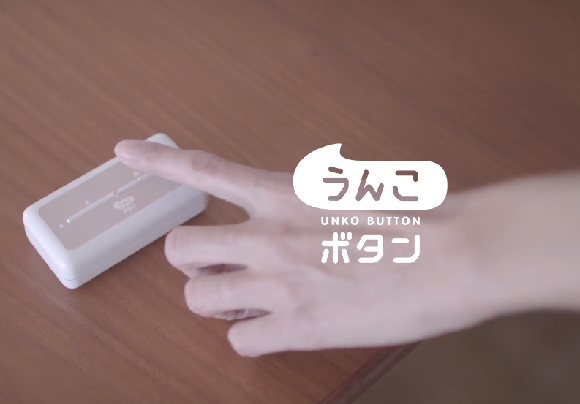

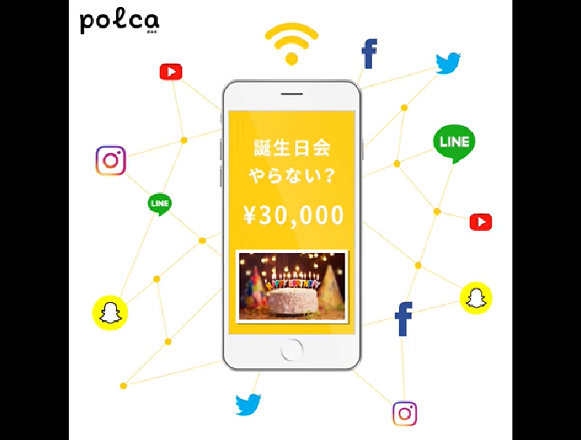
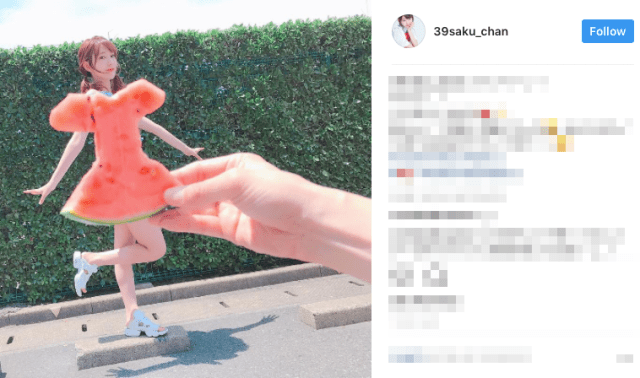
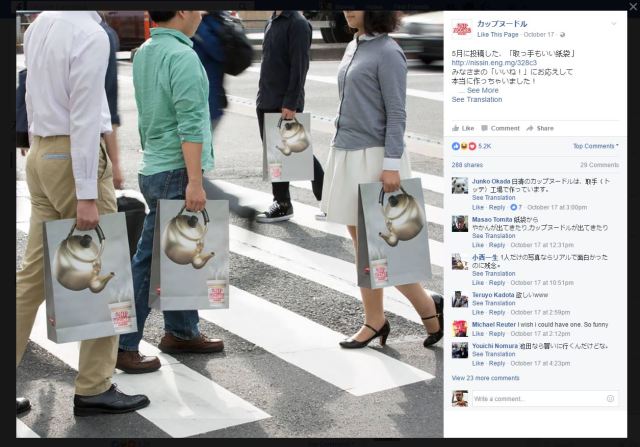


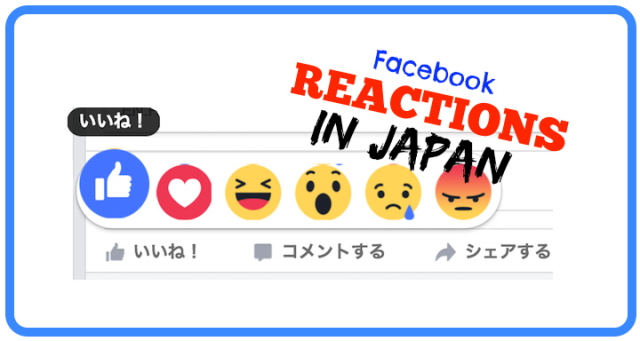

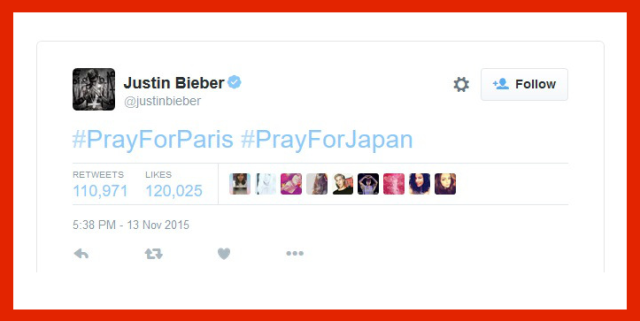
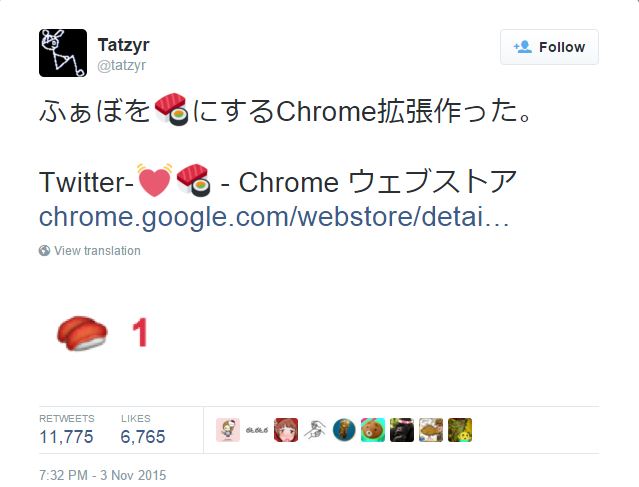
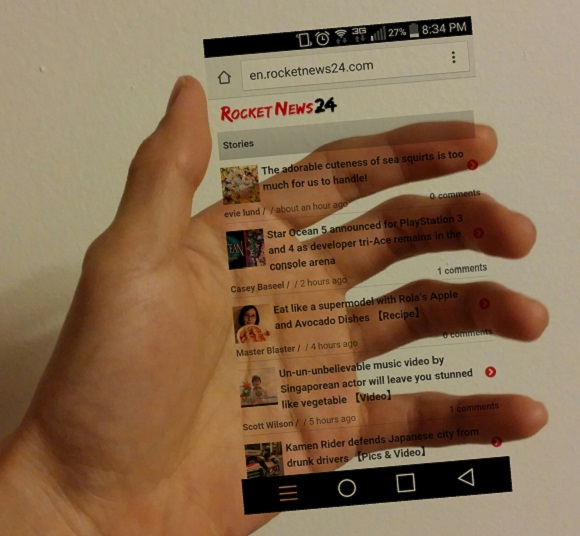
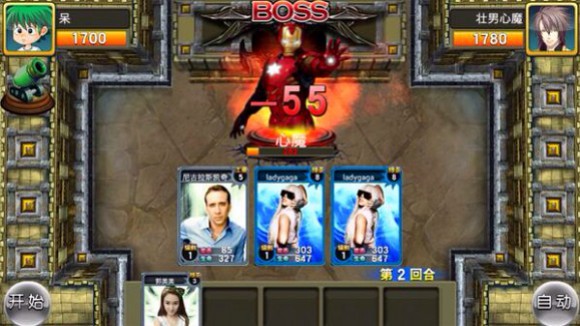
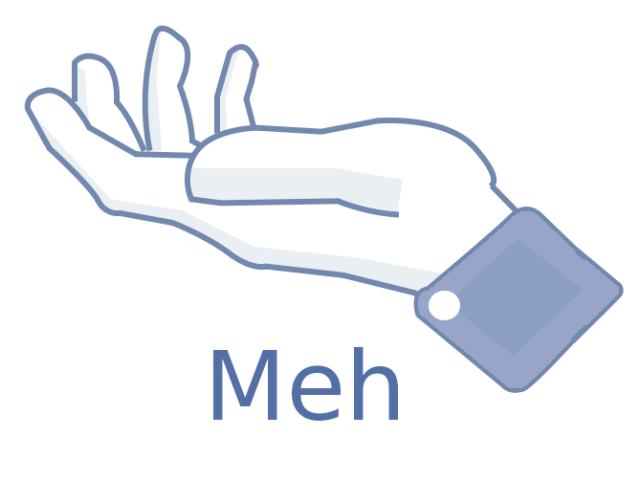
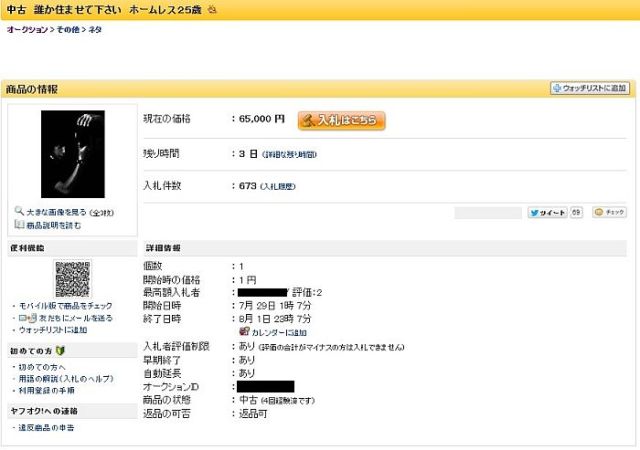
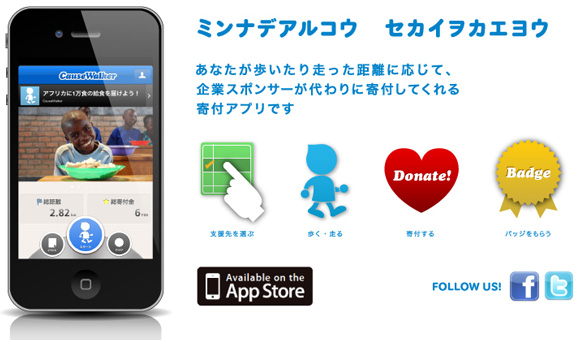
 Starbucks Japan unveils new sakura cherry blossom collection for hanami season 2026
Starbucks Japan unveils new sakura cherry blossom collection for hanami season 2026 One Piece creator has hidden secret of anime treasure’s identity in chest at bottom of real-world ocean
One Piece creator has hidden secret of anime treasure’s identity in chest at bottom of real-world ocean Live-action One Piece’s Luffy teaches Sesame Street’s Elmo a Japanese word for friendship[Video]
Live-action One Piece’s Luffy teaches Sesame Street’s Elmo a Japanese word for friendship[Video] Japan’s cherry blossom season predicted to start earlier than we’d thought, especially in Tokyo
Japan’s cherry blossom season predicted to start earlier than we’d thought, especially in Tokyo Children’s slippers stolen in night at Japanese preschool, police identify weasel who did it【Vid】
Children’s slippers stolen in night at Japanese preschool, police identify weasel who did it【Vid】 The heartwarming story of Japan’s “Weakling Gundam” and the fans who supported it in its hour of need
The heartwarming story of Japan’s “Weakling Gundam” and the fans who supported it in its hour of need Japanese government to phase out fax machines, paper documents, personal seals
Japanese government to phase out fax machines, paper documents, personal seals The 13-year-old video game contest winner who became one of Japan’s greatest manga artists
The 13-year-old video game contest winner who became one of Japan’s greatest manga artists The results are in! One Piece World Top 100 characters chosen in global poll
The results are in! One Piece World Top 100 characters chosen in global poll The 10 most annoying things foreign tourists do on Japanese trains, according to locals
The 10 most annoying things foreign tourists do on Japanese trains, according to locals Starbucks Japan releases first-ever Hinamatsuri Girls’ Day Frappuccino
Starbucks Japan releases first-ever Hinamatsuri Girls’ Day Frappuccino Japanese restaurant chain serves Dragon Ball donuts and Senzu Beans this spring
Japanese restaurant chain serves Dragon Ball donuts and Senzu Beans this spring Japan Extreme Budget Travel! A trip from Tokyo to Izumo for just 30,000 yen [Part 1]
Japan Extreme Budget Travel! A trip from Tokyo to Izumo for just 30,000 yen [Part 1] Japan’s craziest burger chain takes menchi katsu to new extreme levels
Japan’s craziest burger chain takes menchi katsu to new extreme levels Japan Extreme Budget Travel! A trip from Tokyo to Izumo for just 30,000 yen [Part 2]
Japan Extreme Budget Travel! A trip from Tokyo to Izumo for just 30,000 yen [Part 2] Is Tokyo Station’s startlingly expensive wagyu bento boxed lunch worth its high price?[Taste test]
Is Tokyo Station’s startlingly expensive wagyu bento boxed lunch worth its high price?[Taste test] Japanese drugstore sells onigiri at pre-stupid era prices, but how do they compare to 7-Eleven?
Japanese drugstore sells onigiri at pre-stupid era prices, but how do they compare to 7-Eleven? Viral Japanese cheesecake from Osaka has a lesser known rival called Aunt Wanda
Viral Japanese cheesecake from Osaka has a lesser known rival called Aunt Wanda Lawson adds doughnuts to its convenience store sweets range, but are they good enough to go viral?
Lawson adds doughnuts to its convenience store sweets range, but are they good enough to go viral? Japan’s newest Shinkansen has no seats…or passengers [Video]
Japan’s newest Shinkansen has no seats…or passengers [Video] Starbucks Japan releases new sakura goods and drinkware for cherry blossom season 2026
Starbucks Japan releases new sakura goods and drinkware for cherry blossom season 2026 Foreigners accounting for over 80 percent of off-course skiers needing rescue in Japan’s Hokkaido
Foreigners accounting for over 80 percent of off-course skiers needing rescue in Japan’s Hokkaido Super-salty pizza sends six kids to the hospital in Japan, linguistics blamed
Super-salty pizza sends six kids to the hospital in Japan, linguistics blamed Starbucks Japan unveils new sakura Frappuccino for cherry blossom season 2026
Starbucks Japan unveils new sakura Frappuccino for cherry blossom season 2026 Foreign tourists in Japan will get free Shinkansen tickets to promote regional tourism
Foreign tourists in Japan will get free Shinkansen tickets to promote regional tourism Take a trip to Japan’s Dododo Land, the most irritating place on Earth
Take a trip to Japan’s Dododo Land, the most irritating place on Earth Naruto and Converse team up for new line of shinobi sneakers[Photos]
Naruto and Converse team up for new line of shinobi sneakers[Photos] Survey asks foreign tourists what bothered them in Japan, more than half gave same answer
Survey asks foreign tourists what bothered them in Japan, more than half gave same answer Japan’s human washing machines will go on sale to general public, demos to be held in Tokyo
Japan’s human washing machines will go on sale to general public, demos to be held in Tokyo Starbucks Japan releases new drinkware and goods for Valentine’s Day
Starbucks Japan releases new drinkware and goods for Valentine’s Day We deeply regret going into this tunnel on our walk in the mountains of Japan
We deeply regret going into this tunnel on our walk in the mountains of Japan Studio Ghibli releases Kodama forest spirits from Princess Mononoke to light up your home
Studio Ghibli releases Kodama forest spirits from Princess Mononoke to light up your home Major Japanese hotel chain says reservations via overseas booking sites may not be valid
Major Japanese hotel chain says reservations via overseas booking sites may not be valid Put sesame oil in your coffee? Japanese maker says it’s the best way to start your day【Taste test】
Put sesame oil in your coffee? Japanese maker says it’s the best way to start your day【Taste test】 No more using real katana for tourism activities, Japan’s National Police Agency says
No more using real katana for tourism activities, Japan’s National Police Agency says The heartwarming story of Japan’s “Weakling Gundam” and the fans who supported it in its hour of need
The heartwarming story of Japan’s “Weakling Gundam” and the fans who supported it in its hour of need Japanese government to phase out fax machines, paper documents, personal seals
Japanese government to phase out fax machines, paper documents, personal seals The 13-year-old video game contest winner who became one of Japan’s greatest manga artists
The 13-year-old video game contest winner who became one of Japan’s greatest manga artists The results are in! One Piece World Top 100 characters chosen in global poll
The results are in! One Piece World Top 100 characters chosen in global poll The 10 most annoying things foreign tourists do on Japanese trains, according to locals
The 10 most annoying things foreign tourists do on Japanese trains, according to locals Sakura Festival in Chiyoda mixes illuminations, boats, music, and Rilakkuma in the heart of Tokyo
Sakura Festival in Chiyoda mixes illuminations, boats, music, and Rilakkuma in the heart of Tokyo New Japanese KitKats feature sakura sake and a traditional cherry blossom dessert
New Japanese KitKats feature sakura sake and a traditional cherry blossom dessert Last chance coming up for amazing east Japan for all-you-can-ride Shinkansen-inclusive train pass
Last chance coming up for amazing east Japan for all-you-can-ride Shinkansen-inclusive train pass Wotagei glow stick dance performance of Ed Sheeran’s “Shape of You” too awesome for words【Video】
Wotagei glow stick dance performance of Ed Sheeran’s “Shape of You” too awesome for words【Video】 Shibuya Station’s Hachiko Gate and Yamanote Line stairway locations change next month
Shibuya Station’s Hachiko Gate and Yamanote Line stairway locations change next month